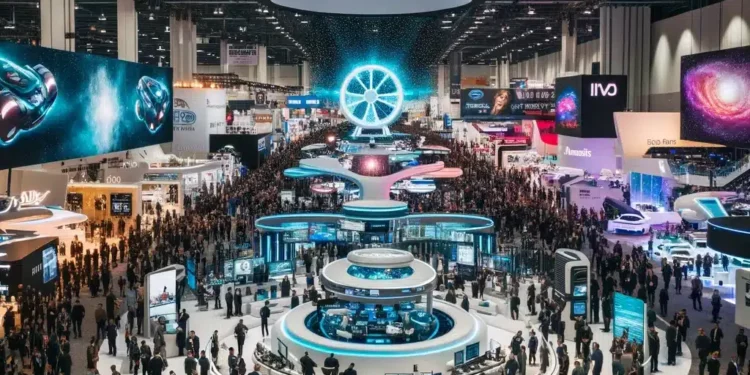I’m writing this from a bench along the Aria Hotel’s heavily trafficked hallway/food court, right around the corner from Starbucks, where everybody from the media, marketing and ad-tech worlds who is here in Las Vegas for CES walks several times a day. As CES veterans know, this is one of the best spots for efficient networking.
I’ve been coming to CES for decades — not every year, but most. I’ve talked to literally hundreds of people here this year, and feel like I’ve been able to get a pretty good pulse on the top issues on most folks’ minds. Here are my top six takeaways (bear in mind, of course, I still have another 24 hours to go, so I might change things a bit if I wrote this tomorrow):
CES is fully back!
The Covid-19 impacts that were devastating to CES, Las Vegas and industry events like this are clearly over. Everybody is here, from all over the world.
Back to the future on talent
Almost everybody I have talked to, certainly those in leadership and management roles, said that the Covid-19 era work rules of lots of “work from home” and a lighter touch on direction and accountability, are over, as well.
It’s clear that a tougher economy, a crowded marketplace, and companies trying to live up to inflated valuations and salaries from years past no longer have the ability to be soft on workforce expectations. It’s back to the future there!
Consolidation, liquidation
Overcrowded markets, overinflated valuations, pumped-up compensation structures and high cost of capital are all conspiring to make companies focus on profitability and cash flow, aiming for a tight, super-aligned-to-profit generation cost structure, instead of ephemeral, early-stage company metrics like ARR (average recurring revenue).
Just like a massive, multiplayer game of musical chairs, the big question is whether all companies, particularly those in TV programming and ad tech, will find a chair. Some will consolidate. More will be liquidated.
Reset of ‘alt measurement movement’
Over the past few years, we’ve seen more than a dozen companies raise billions of investor capital collectively at huge valuations, hoping to grab a chunk of the multibillion-dollar TV and premium video ad currency market.
So much for that. Big topics in Vegas include the layoffs and the resetting of business models in this sector, the clear resilience and survivor power of longtime dominant player Nielsen, and the tough economics and consolidation of the large TV companies, who are the ones who fund the currency market.
As was described to me last evening, the “alt measurement movement” doesn’t look like it will ever get to the adult table of currency revenues. Best to take a zero off those crazy valuations!
AI everywhere
Of course, AI is the big topic here. Everyone is talking about it. Every company has added it to their press releases, their one-sheeters, their presentations and their booths. By far the best discussion on the topic I have seen here is from Shelly Palmer. He has been focused on AI for a decade. He is the best.
Workflow redesign, automation
The rising cost of capital, the focus on profits, the need to get more with less and the emergence of AI to 10X productivity and output means are putting workflow redesign and automation at the top of a lot of industry discussions here. It’s easy to talk about, but hard to do. Let’s see where this one ends up in a year.
Are you wondering why I haven’t listed drones, virtual reality glasses, foldable TVs or kitchen-top smokers? It’s because I haven’t been to the convention floor yet.
I’m actually headed there now. More on that next week!
This story was first published by MediaPost.com and is republished with the permission of the author.

Dave Morgan, a lawyer by training, is the CEO and founder of Simulmedia. He previously founded and ran both TACODA, Inc, an online advertising company that pioneered behavioural online marketing and was acquired by AOL in 2007 for $275 million, and Real Media, Inc, one of the world’s first ad serving and online ad network companies and a predecessor to 24/7 Real Media (TFSM), which was later sold to WPP for $649 million. Follow him on Twitter @davemorgannyc














